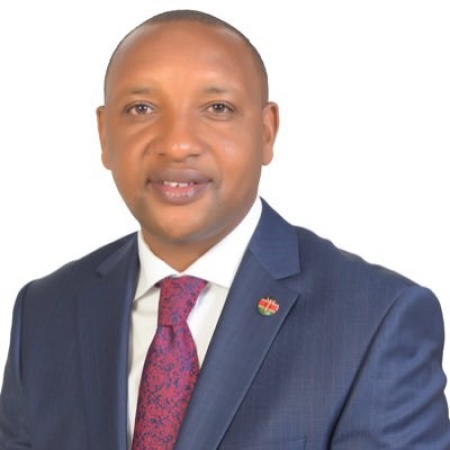

























Loading banners


NEWS EXPRESS is Nigeria’s leading online newspaper. Published by Africa’s international award-winning journalist, Mr. Isaac Umunna, NEWS EXPRESS is Nigeria’s first truly professional online daily newspaper. It is published from Lagos, Nigeria’s economic and media hub, and has a provision for occasional special print editions. Thanks to our vast network of sources and dedicated team of professional journalists and contributors spread across Nigeria and overseas, NEWS EXPRESS has become synonymous with newsbreaks and exclusive stories from around the world.

Barely six months to the end of the recapitalisation window, over 10 mid-tier and marginal banks are still grappling with multiple setbacks that could ruin their chances of securing the required capital thresholds and ultimately result in merger and acquisition or, in the worst case, forced liquidation as the deadline approaches.
At the top of the concerns, The Guardian learnt at the weekend, is a growing investors? fatigue that has left some players with a considerably high chance of turning on investors scampering for funds.
The anxiety is now worsened by rising competition for funds, especially as the insurance industry joins the fray. The changing tide is said to have increased the bargaining power of fund holders and managers, who have begun to review their initial investment plans.
Affected banks are counting on the commitment of the Central Bank of Nigeria (CBN) to support players in crossing the hurdle ? a vague promise that offers no substantial assurance to operators who ?choose? to fall by the way. Newspaper subscription bundles
In the face of the anxiety, talks about mergers and acquisitions may be breaking down over the wide variance in corporate governance and risk appetites by the prospects.
The delay in agreeing on the terms of the business combination is stoking panic about a possible last-minute forced merger that would erase corporate memories and lead to major equity loss.
In boardrooms, stakeholders are demanding full disclosures on existing liabilities that could threaten the corporate existence of the new businesses going into the post-consolidation era.
Sources familiar with the negotiation say a lack of clarity on disclosure requirements and poor leadership at the negotiation tables have complicated the bargain and stalled progress.
Some operators, in previous cases, were almost ruined by legacy risks and liabilities that were not disclosed before merger signing. Fidelity Bank Plc, for instance, has had to grapple with a legacy $3 million credit granted by the defunct FSB International Bank, which it acquired during the 2005 reconsolidation.
A last-minute merger option may leave the partners a little or no time to properly investigate outstanding commitments that could pose substantial risks. Hence, a source told The Guardian, players are working tirelessly to complete their fundraising processes before the first quarter (Q1) of next year.
The apex bank has set the end of March 2026 as a deadline for the recapitalisation ? a target the regulator is said to have told the operators would not be adjusted for any reason.
At the recent Monetary Policy Committee (MPC) meeting, the CBN Governor, Yemi Cardoso, said eight entities have met the target.
About 10 others, including Tier-one and foreign-owned brands, it was learnt, are finalising the process and regulatory clearance. Others are still neck-deep in fundraising with their fate hanging in the balance.
Over 30 money commercial, non-interest and merchant banks were in the race to meet the new capital requirement last year. From the beginning of the year, some, including some of the leading players, announced they had crossed the milestone.
Polaris and Unity Bank, in the heat of the funding campaign in August, secured a regulatory approval after the latter was granted liquidity support. Close to a year after the CBN?s nod, the business combination talk is yet to be concluded.
The Guardian was informed that the two parties have reached a stage. A successfully concluded Polaris Unity Bank, as contemplated, may set the stage for one or two other mergers and ease tension around the prospect of a business combination in the ongoing consolidation.
The anxiety in the banks is worsened by the newly announced insurance industry recapitalisation framework, with management of some small lenders, who are yet to conclude their recapitalizations, said to have been seeking advice from investment experts on how they could quickly ramp up their arrangements.
Multiple sources informed The Guardian of a considerable shift of attention to insurance companies, which some wholesale investors, including local institutions and fund managers, have been keenly watching.
Two weeks ago, insurance stocks saw the steepest movement in history, rising by about 50 per cent as institutional and foreign investors jumped on the shares after the signing of the Nigerian Insurance Industry Reform Act 2025 (NIIRA).Newspaper subscription bundles
Last week was a circuit breaker in the months-long stock market bull run. But insurance, again, bucked the trend with an eight per cent plus gain, stretching the post NIIRA gain to over 60 per cent.
The law, with a broad template on new regulatory, governance structure, disclosure requirements, process and claim payment digitalization as well as operational framework, stipulates new capital requirements for all segments of the market.
Last week, the National Insurance Commission (NAICOM) followed up the legislation provision with an official guideline on the recapitalisation, giving the operators a year, handing over the operator 12 months to meet the new threshold or face forced liquidation.
Unlike the banks, the insurance industry recapitalisation rides on a programme that promises to deliver the long-awaited reforms of the emerging industry and raise the capacity level.
At a market penetration of 0.4 per cent, according to an Afrinvest research, the insurance industry is largely a no-starter, meaning that it has more growth prospects than the well-developed banking industry.
Perhaps, the promised reform would change the face of insurance and increase market penetration to make the sector the driver of the economy, as it does elsewhere across the globe. If the sector doubles its penetration by the sheer cause of the reform, it will still lag its peers across Africa. But that would possibly double the size of the industry. This explains the reason behind the spike in insurance stocks in the past two weeks and, maybe, why the sector is emerging as an investor?s delight.
Indeed, whereas many of the operators face liquidation risk in a year when the fundraising campaign would have gone a full cycle, the tier-one underwriters who are billed to emerge from the reform mega underwriters are already seeing an ultra-high attention.
First, the firms are currently involved in share buy-backs, triggering the ongoing price pumping. Also, foreign investors have renewed their interest in the sector, realising the enormous post-consolidation growth, just as retail investors are taking positions ahead of the expected bull run next year when the market begins to assume a new form.
These actions have jointly stimulated activities and pushed the insurance stock to a highway, a frenzy that is expected to continue in the next 12 months as different companies unveil their fund-raising programmes.
The insurance stock mania may be taking shine off bank opportunities. An investment banker, at the weekend, said inquiry calls about insurance firms have intensified since the signing of NIIRA, a law widely described as a game changer in the old but snail-moving industry.
Another source said banking and other industries could witness a modest outflow of funds in the coming months as insurance emerges as the new toast of investors. The projection rides on the understanding that the insurance has never had an opportunity to leverage the equity market potential.
The insurance rise could strain last-minute efforts to beef up bank paid-up capital to retain their operating licences. A few banks are scouting for funds through private placement and other offers, while some are seeking a return to the market for the last leg of the journey.
The insurance?s entry to the market may undermine the marketing of the investment offers from banks, The Guardian understands.
But an investment banker, David Adonri, insisted the capital market is big enough to take on the capital needs of both banks and insurance firms, even though he admitted some firms could face enormous challenges.
But Godwin Owoh, a professor of applied economics and expert in monetary policy, is not swayed by the ?so-called? recapitalisation. If anything will change in the two industries, he said, the politicians, who have mastered the art of converting public resources to personal wealth, have consolidated their stake in the financial sectors.
Owoh, at the onset of bank recapitalisation, told The Guardian that the policy would open a door for politicians to launder stolen money in the guise of investment, using proxies. Yesterday, he said, his position had not changed.
The CBN and the Securities and Exchange Commission (SEC) had rolled out guidelines for fundraising by the operators and promised to check against illicit capital inflow into the sector. But Owoh said the regulators had no capacity and political will to prevent the inflow of ill-acquired wealth.
Rather than waiting to recapitalise the critical sectors after years of capital erosion, the economist charged the regulators to tackle the causes ? including corruption and insider trading ? of capital erosion head-on. (The Guardian)
? The Central Bank of Nigeria (CBN) has given banks and other financial institutions deadlines to perfect their recapitalization or face dire consequences